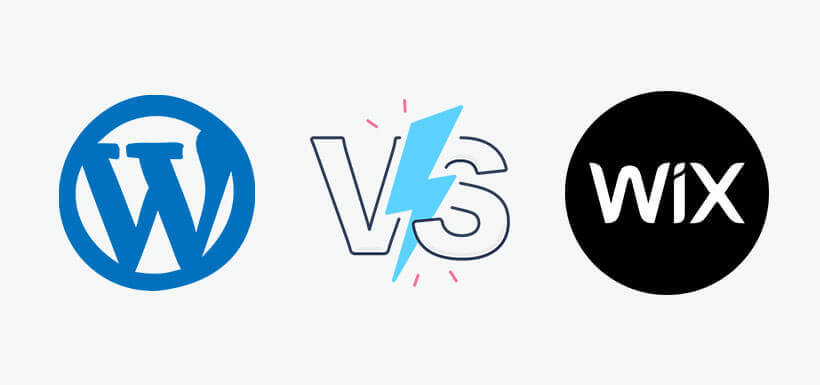
5 Tips To Start Preparing Your Business Website For The New Year
We’re saying goodbye to 2022 and looking ahead to a year that is going to bring more business, web traffic, and growth for your website. The new year provides an opportunity to build your brand and acquire new customers to keep your business flourishing all year long.
Are you ready to be one step ahead of the competition in 2019? Here are 5 tips to consider when preparing your business website for the new year.
1.) Review Your Site’s User Experience (UX)
Having a user-friendly site with optimal UX is essential for creating a positive online experience for your visitors. When a user is on your site, anything that conveys a message like an image, video, or product description can influence how they interact with your site. Are your visuals appealing? Is your site mobile responsive? UX has become increasingly vital to a site’s success because a visitors opinion of your business can be directly impacted by what they are experiencing on your site. These are a few factors that can change a negative UX to a positive one.
- Increase your site speed
- Update your website design
- Make sure you have a readable font
- Ensure your site is accessible for physically disabled and visually impaired
Reviewing user comments or common issues people can experience on your site will help determine your site’s functionality. Usability testing is also a method of evaluation that can help you identify more finite issues a user could be experiencing with your site. Tweaking site components for your visitors to have a favorable UX has the potential to grow your traffic in 2023.
2.) Protect Your Customers With Security SiteLock (SSL)
As a business website selling goods or products, keeping your customer’s information protected is of top importance. Installing an SSL certificate on your site lets customers or visitors know that any personal information they submit through your site is protected. An SSL certificate also helps enhance customer trust on your site, improve conversion rates, and increase your Google rankings.
If you plan to process any credit card or personal information through your site, you will need an SSL certificate in order to be Payment Card Industry Data Security Standard (PCI) compliant. Being PCI compliant is essential to help protect your site and the customers who are sharing their credit card information. Whether you are a small or large business, your goal should be to build and maintain a secure network for visitors.
There are several types of SSL certificates you can add to your site and Bluehost offers a great variety for our customers. An SSL certificate can appear as an image at the bottom of a webpage indicating the certificate, a padlock, or the words “SSL,” or “Security.”
3.) Increase Your Site Visibility With Relevant SEO keywords
Making your website search friendly in 2023 is an actionable goal that you can conquer with a little help from search engine optimization (SEO). SEO has become increasingly important to how a site ranks on a search engine because it can increase site awareness and drive traffic to your site. Keeping track of SEO on your site is an excellent way to generate traffic that is organic and free without depleting your wallet.
Creating quality content with natural keywords or phrases helps people to find your site via search engines. Developing a list of relevant keywords specific to the product or services you offer is the best way to ensure potential visitors land on your page versus a competitor. There are several SEO search tools that can you use to find the best and most relevant keywords to assist with traffic and conversions on your site. Relevant keywords are always changing so setting up a weekly or monthly schedule to review your words for SEO visibility is imperative to keep your site ranking high.
4.) Use A Staging Site To Test New Plugins Or Themes
The new year is the perfect time to update your theme or install new plugins on your site. A website refresh is a great way to introduce new products and services, but you want to ensure your existing site content is compatible with any new installs. Bluehost customers have the opportunity to test out their site before making any final changes that can affect their public site.
The AllinwebIT staging environment allows customers to test and see if any new themes and plugins will work on your site. A staging site allows you to make and save changes without your public site being affected. Once you’ve perfected your site in the staging environment you can publish it to your live site. You can use this opportunity to be creative and experiment with an updated design or install a plugin you’ve been itching to try without any worry it will cause your site to crash or malfunction.
5.) Identify The Best Social Media Platforms For Your Site
Social media has become an essential component of how brands market themselves to billions of users across each channel. Having a social media platform is vital for marketing and promoting your company, but not every social platform is best for your business. If you spent this past year scrambling to post on multiple platforms, now is the time to focus on what social media can best support your business.
Here are a few suggestions to find the best social media channels for your brand.
- Write out your social media goals
- Establish a publishing cadence and how you’ll identify whether you are successful or not.
- Understand your industry
- Doing your market research can help develop brand awareness and identify your target audience.
- Know the purpose of each platform
Each platform has different benefits that can strengthen your social media presence. - Go where your audience is
Only use your time on social platforms where your customers frequent.
Once you are able to identify which social media accounts are helping to enhance your business goals you’ll be able to work on strengthening your online presence. You can invest your efforts into growing those accounts by creating a social media strategy that will engage conversation and make the best use of your ad dollars for marketing.
As we transition into the new year, preparing your business website for the new year can set you up for long-term success. Using the holiday to identify the strengths of your site can help you take the first step to make small tweaks or updates you need in 2023
